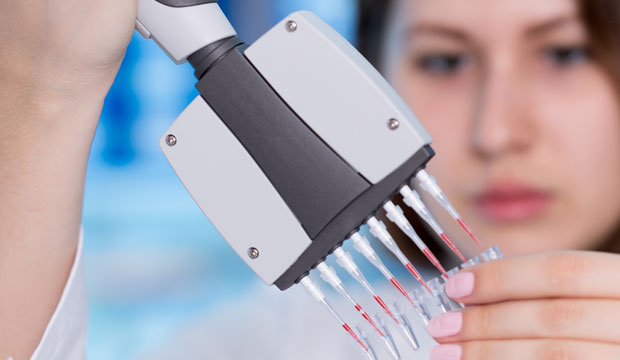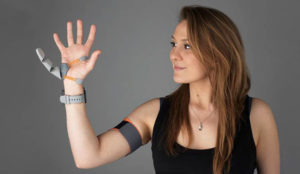Lexi Palmer is CEO of EquiSeq, a biotech firm that does genetic testing of horses.

Palmer was brought on as CEO by the company’s founder, genetic researcher Paul Szauter, in 2015.
EquiSeq, which tests horses for genetic diseases, is developing an equine genome database.
TechNewsWorld: How did you get involved with EquiSeq?
Lexi Palmer:
I met Paul Szauter at a community networking event hosted by 1 Million Cups. I was just finishing up my degree in interpersonal communications at the University of New Mexico, and he told me about the company he’d started. I told him I knew everything about horses and said I could learn everything he did and market it.
Two weeks later we were discussing my title. He asked, “Where do you see yourself? What title do you want?” I said “CEO,” and he said, “OK, is this something you want to do?”
I knew I needed a challenge, and this was the challenge that presented itself. Since I came on in November 2015, we’ve launched our first four products and are about to publish our first patent. Paul was willing to give me an opportunity, and I took it and ran with it.
TNW: What is your background with horses?
Palmer:
I’ve been riding horses since second grade, when I started taking lessons. The first horse I had was in sixth grade. He was abandoned in a backyard, and he was sold to us for a penny. I loved that horse, and I kept riding all through high school and have worked at horse camps and been involved with horses ever since.
A lot of the way I approach problems comes from horseback riding. When you’re jumping, for example, it can be intimidating. Your trainer, though, will make you jump jumps that are higher than you’re comfortable with, so that you’ll be ready for a show.
There are a couple of ways you can approach a jump when you’re scared. You can shy away from it. You can fall over it. Or you can act like you’re not scared at all and jump better than you’ve ever jumped before.
That’s my approach to everything. It’s not that I’m fearless. It’s just that I know the worst that can happen is that I will fail. That’s my approach to everything. Go at it, and most of the time everything ends up working out.
TNW: What are some of the challenges you’ve faced as a young CEO of a biotech firm?
Palmer:
Some are because of age, and some because of gender. People think that millennials haven’t worked, haven’t paid their dues. I’ve had a few instances where I was told that I need to pay my dues.
I’ve also had men refuse to speak to me, saying they’ll only talk to Paul. I get questioned a lot. The thing is, though, I’m aware that I’m young, and that there’s a lot to learn — but I’m making this company successful, and that’s all that matters.
TNW: What are some of your daily tasks as CEO of EquiSeq?
Palmer:
A lot of isn’t so glamorous. A lot is strategy. We’re in the middle of fundraising, so a lot of it is following leads and talking with people. I do pitches at pitch competitions.
I do volunteer work to talk about STEM topics, and I stay active in the community.
I work with the team, strategize, and do customer service, making sure that orders are filled and things are getting paid.
I oversee all operations and work as the voice for the company. I present EquiSeq in a way that makes sense to others, explaining genetic testing to people.
I am just enthralled with everything that we do. Understanding your DNA is understanding your core, everything that makes you you.
TNW: In what ways can young girls be encouraged to go into biotech fields?
Palmer:
I’m passionate about inspiring younger girls to go into tech. The best way to do that is to have role models out in the community whose merit is in their success.
That’s really resonated when I’ve talked with young girls. I’m not that much older than they are, and they can envision themselves in my shoes.
We need to have more stories like mine. We need to let girls know that it’s OK to feel beautiful by being smart. It’s not just about looking pretty.
TNW: What’s in the future? How is EquiSeq evolving?
Palmer:
Our main goal is to help people stop breeding horses with diseases. Our entire business model is that you deserve a life with your best friend, so we’ll do whatever we can to make sure that happens.
There are a few different potential directions we might go. There could be an eHarmony for breeders, for instance.
Our goal is to keep discovering things about the horse genome and harvesting that data. While we’re doing genetic tests we’re collecting data, so we’re also a data company.
That data might be of great interest to pharmaceutical and pet insurance companies. It could be great for a website that helps people vet horses. There are a lot of different applications.
It’s all a matter of what opportunities present themselves, and what aligns with our company.























































